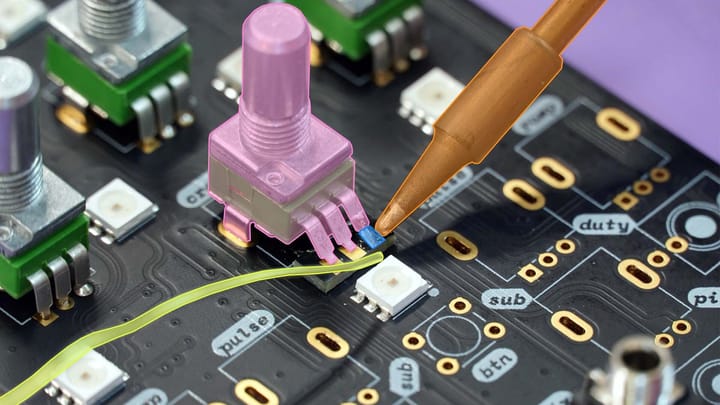How is AI impacting the education system?

Artificial Intelligence (AI) is no longer just a buzzword; it has become an integral part of our daily lives. From virtual assistants like Siri and Alexa to self-driving cars, AI has revolutionized the way we live and work. But what about education? Can AI annotation improve the way we learn and teach?
In this article, we’ll explore the impact of AI on the education system. We’ll discuss the advantages of AI in the classroom, including personalized learning, assessment and evaluation, and student support and engagement. We’ll also address the challenges and concerns of AI in education, such as privacy and bias, and the ethical considerations that come with AI-powered education.
As we delve into the future of AI in education, we’ll examine the potential impact on the education system and the way we prepare students for the workforce of tomorrow. This article will provide valuable insights into the role of AI in education and how it can shape the future of learning.

Introduction To AI And Its Role In Education
Artificial Intelligence (AI) is changing the world as we know it, and the education system is no exception. AI has become an effective tool for addressing challenges in education and accelerating progress towards SDG 4. With its ability to collect and analyze data, AI can inform educators of students' engagement, learning progress, and well-being. It also has built-in digital apps and tools that allow for teacher interaction and individual progress monitoring.
AI has the potential to transform education by optimizing teaching and learning processes through personalized learning algorithms. By identifying strengths and weaknesses of each student, AI can tailor educational materials to suit individual needs better. Virtual reality experiences could be created without leaving the classroom to engage with students from far countries or showcasing historical sites that endanger undue ecological harms if used a long time ago; this provides learners with an interactive learning environment that improves understanding retention.
Augmented reality technology implemented using AI promises a more engaging learning experience for students, allowing them to interact with virtual objects in ways previously impossible. By placing real-time information onto what people see around them using devices or smartphones on smart boards or screens within classrooms create new immersive experiences transforming how people share information effectively.
While the benefits of AI in education are profound, policymakers need to identify risks associated with implementing these technologies fully effectively. The use of sensitive data raises questions on privacy or equity considerations necessitating transparent policies on how such data is collected stored secured shared among stakeholders which must consider critically if they are expanding their pedagogical objectives through technological innovations rather than amplifying existing biases habits entrenched within curricula schooling methods which limit creativity critical thinking or diversity among other concerns when initiating incremental improvements leveraging machine-generated insights or conclusions
Advantages Of AI In The Education System
One of the most significant advantages of AI in the education system is personalized learning. AI-powered systems can generate customized lesson plans and assessments for each student, based on their unique learning abilities and needs. This ensures that students receive an optimized learning experience, leading to increased engagement and better performance.
Additionally, AI can provide better access to learning for students with special needs. With intelligent tutoring systems, AI-powered devices can identify the areas where a student needs additional support and provide tailored guidance accordingly. This helps students who may require extra time or help in certain subjects to keep up with their peers.
Another advantage of AI in education is that it allows for real-time problem-solving assessment. Teachers can use this technology to track how well their students are understanding concepts by monitoring individual progress throughout a lesson or course. By doing so, they become aware of areas where more attention is needed and thus provide specific solutions.
Lastly, immersive virtual reality (VR) experiences are now available due to advances in artificial intelligence research into machine vision algorithms called SLAM (simultaneous localization and mapping) which allows computers to create maps from camera input that have allowed VR games like Pokémon Go! The University Of Southern California Institute of Creative Technologies found that soldiers learned fast while using these simulations rather than reading directions during training simulations.
Overall, the benefits provided by AI are changing how we teach and learn in remarkable ways; it provides a diverse range of opportunities for learners around the world no matter their individual circumstances.

AI-powered Personalized Learning
AI is transforming the education landscape by providing personalized learning methods to students. Personalized learning enhances engagement and motivation for students which are key factors in their academic success. AI can capture, aggregate, and analyze data to build student learning profiles. By analyzing the data of each individual's learning preferences, strengths, and weaknesses, AI can suggest personalized learning methods and provide additional tutoring when needed.
Apart from personalized learner support, AI analysis can also enable better-informed decisions for educators and administrators. Through the collection of large amounts of student data from grading patterns to test scores presented in user-friendly dashboards or reports by AI platforms, educators can gain insight into critical areas that need improvement such as tracking student progress effectively over time, optimizing curriculums based on real-time analysis of a class’s needs or understanding which topics pose the greatest challenge.
The ability for AI-powered personalized learning systems to evaluate massive amounts of information about learners has made it more clear that equitable access should be provided to information resources so as not to increase inequities between learners from various income levels or backgrounds through increasingly supportive technologies rather than isolating tools used outside instructional settings.
AI-powered personalized learning offers many benefits regarding enhancing engagement and motivation among students while also enabling teachers and administrators' better-informed decision-making process(es). The framework provided by these technologies will undoubtedly prove useful in designing an educational system that is more inclusive while effectively serving all learner groups evenly.
AI-powered Assessment And Evaluation
AI-powered assessment and evaluation is a game-changer in the education system. AI has the potential to improve accuracy, efficiency, and fairness in assessments and evaluations. With AI, student learning can be measured more accurately, providing deeper insights and facilitating individualized learning processes.
AI can automate administrative tasks such as test evaluation, allowing teachers more time to focus on teaching rather than grading tests. The use of AI in grading essays can not only save time but also provide instant feedback to students. Additionally, AI-powered evaluations can improve physical and cyber security through biometric solutions.
One of the most important benefits of using AI for assessments is its ability to favor candidates based solely on their merit while minimizing human bias towards students' demographic information such as race or gender. This fosters a fairer system where students are evaluated based on their skills rather than any other discriminatory factors.
Europe has proposed a legal framework on AI that addresses risks related to biased decisions or errant automated judgments during assessments. Therefore it is important that schools who plan on adopting this technology ensure there are strict ethical guidelines in place when using these powerful systems.
AI-powered assessment and evaluation will be an important tool for modernizing the education system by making evaluations faster, unbiased and effective at identifying areas where students need help; thus better preparing them for a successful future in their respective fields.
AI-powered Student Support And Engagement
With the rise of artificial intelligence (AI), the education system has embraced technology to improve student engagement and support. One way AI is being used in classrooms is through chatbots. These chatbots offer personalized and interactive learning experiences to students, providing 24/7 support while improving accessibility. By generating unique conversations with each student, AI-powered chatbots can help instructors manage huge class sizes.
AI technology also provides data analytics that can help educators stay informed about their students' progress, engagement, and well-being. With this information at hand, teachers can tailor their lessons to meet individual needs and identify areas where students require additional assistance.
Furthermore, introducing the concept of AI at an early stage can help students be digitally ready for future academic success. Educators have a role in educating learners on the ethics of AI use while demonstrating practical applications of its uses in academic fields such as emotional wellbeing and streamlining educational procedures.
In summary, it is evident that AI technology has immense potential to improve student engagement and support. From generating unique conversations with every learner through chatbots to enabling advanced data analysis for educators to track every student's learning journey- these tools constitute resources that build personal connections between disruptive technologies as well as human interaction for optimal learning outcomes in classrooms today.
Challenges And Concerns Of AI In Education
The integration of Artificial Intelligence (AI) in education has brought different challenges and concerns that have surpassed policy debates and regulatory frameworks. Privacy breach is one of the main risks; students and instructors may view AI systems negatively. Therefore, measures must be taken to ensure data security while taking advantage of technology's benefits.
Another significant challenge is the accessibility of AI-powered tools and platforms. To make technology inclusive, we must provide equal opportunities regardless of socioeconomic status or location. However, there are concerns about AI perpetuating existing biases and discrimination in education. This mainly happens with personalized learning materials that can reinforce values associated with cultures or ethnic groups, whether intentionally or not.
Policy makers and district leaders need to ensure they are implementing AI applications while considering potential benefits and risks without including ethical issues. They should promote informed consent as it is fundamental when using certain types of personalized learning technologies that involve collecting personal data from learners. The best way to address these ethical dilemmas is by following transparency principles within educational institutions.
Artificial Intelligence has the potential to overcome different obstacles in education like innovating teaching practices effectively. Still, it represents countless unknowns since a successful evaluation cannot currently be measured based solely on conventional parameters such as grades or class performance evaluations by teachers alone considering all the considerations needed before implementing Automatic grading systems effectively across National Education System today .
Ethical Considerations In AI-powered Education
AI has the potential to revolutionize education, but its implementation and use come with ethical challenges. These challenges include privacy and surveillance, bias and discrimination, and the role of human judgment. As AI becomes more prevalent in education systems globally, it is important to educate teachers and students alike on these ethical considerations.
One of the biggest concerns with AI in education is privacy invasion. As more student data is collected and stored in online platforms powered by AI, schools must take steps to ensure that this information is kept confidential to avoid any breaches or leaks. Surveillance is also an issue as facial recognition technology becomes more common in schools. Its use may lead to unethical tracking of students' movements if not monitored properly.
Bias and discrimination are other areas where AI can pose a challenge in education. The algorithms behind these technologies can perpetuate existing prejudices, further marginalizing underrepresented groups such as women or ethnic minorities. Additionally, it raises concerns about decision-making based on data that may be incomplete or unreliable.
Moreover, while AI-based systems can combat cheating and plagiarism effectively using advanced detection tools that analyze writing styles for similarities across files submitted by different students - there are still ethical concerns around balancing academic integrity with individual learning needs.
As rapid technological advancement outpaces policy debates and regulatory frameworks internationally; therefore stakeholders at all levels should work collaboratively towards creating policies informed by ethical considerations whilst finding ways of using the benefits enabled by Artificial Intelligence technologies safely for all involved parties; thus ultimately promoting responsible usage of such tools within educational settings worldwide.These will help unlock new possibilities that advance progress towards ensuring access towards quality learning experiences thereby achieving successful outcomes long term for current generations as well as future ones too!

Future Of AI In Education And Its Potential Impact
AI is poised to revolutionize education and address long-standing challenges in the industry. With the AI education market projected to reach $20 billion by 2027, there's no doubt that this technology has a bright future in classrooms around the world.
One of the key benefits of AI in education is its ability to reduce the burden on teachers and streamline administrative tasks. Personalized learning, automated grading, and intelligent tutoring systems are just some of the ways AI is changing how students learn and how educators work. By automating routine tasks, teachers have more time for one-on-one interactions with students or to focus on more creative aspects of teaching.
However, there are concerns about the effectiveness of AI-based education products and services. While these technologies can provide personalized feedback, they may not be able to fully replicate human interactions. Additionally, there's a need for policy debates and regulatory frameworks for ethical use of data collected from students.
Despite these concerns, it's clear that AI has immense potential to unleash productivity and potential in the field of education. As schools continue to adapt to modern technological advancements allowed by AI solutions, we can expect further growth in this sector with an emphasis on optimizing efficient communication between educators and learners while creating intelligent constructs that facilitate socialization among peers – whether it be remotely or within physical classroom settings.



